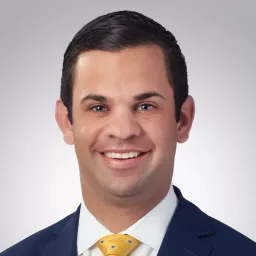Investors are bullish on St. Louis multifamily market as pandemic proves midwest is attractive region to invest
The number of offers on recent listings has nearly doubled compared to the last few years, which is pushing never-before-seen, aggressive terms and pricing.
While the COVID-19 pandemic rocked many commercial real estate sectors in 2020, multifamily – although not completely unscathed -- has consistently remained a top performer.
This holds especially true for the large, secondary Midwest markets including St. Louis, which don’t typically experience the big swings of the primary coastal markets. The Midwest continues to boast sound fundamentals.
Markets across the Midwest reported fewer apartment delinquencies, notes Parker Stewart, NorthMarq’s managing director of Investment Sales, covering St. Louis and Midwest secondary and tertiary markets. While delinquencies increased in 2020 due to pandemic-related layoffs and furloughs, many apartment operators in St. Louis, for example, reported better collection figures compared to many other primary markets across the United States.
“Year over year, the St. Louis multifamily market recorded 2 percent rent growth and 5.5 percent vacancy, which is pretty consistent with many of the secondary markets in the Midwest,” notes Dominic Martinez, NorthMarq’s associate vice president, focusing on multifamily investment sales across the Midwest. “These are not the high-rent growth markets like Boise and Phoenix, yet they’re very stable.”
St. Louis, like many cities, is still recovering from recent job losses due to the pandemic. Year over year, total employment in St. Louis is down 4.5 percent. While the local employment market remains in recovery mode, employers are expected to continue to add workers back to payrolls in 2021, and there are companies expanding.
For example, St. Louis is a thriving hub for geospatial companies. The National Geospatial-Intelligence Agency is building a nearly $2 billion headquarters in north St. Louis. “This development is expected to be a major catalyst for job growth,” says Martinez.
Hottest St. Louis submarkets
Approximately 3,500 units were under construction at the end of the first quarter of 2021. Newer projects have leased up with minimal concessions, Stewart notes. Active submarkets include Midtown and The Grove, which are seeing strong lease-up of Class-A units. Further west, Chesterfield, St. Charles and Wentzville have seen significant upticks in multifamily development with minimal concessions during lease-up.
What’s fueling investor demand?
As noted, multifamily has held up through the COVID-19 storm compared to other asset classes, and specifically, apartments in the Midwest boast strong fundamentals compared to the primary coastal markets. Additional factors behind robust investor demand include:
- The cost of construction is skyrocketing.
With rising construction costs, it is much more difficult to make the numbers work for developers who were planning to break ground on apartment projects this year, Stewart explains. As a result, many stabilized Class-A property owners are hopeful fewer units will be delivered than originally planned, which would create less competition, particularly in Class-A and Class-B properties. - Single-family housing boom is creating a new population of renters.
Single-family home prices have never been higher, Stewart notes. Some would-be homebuyers, many of whom are millennials, are being priced out, which is leading to more demand in the rental market. - Interest rates remain historically low
The low interest rate environment means the cost of borrowing remains low, and more lenders are competing for business. For high-quality apartment deals, Freddie Mac and Fannie Mae, life insurance companies, banks and CMBS lenders are active. An abundance of debt funds and bridge lenders are also active in the space. Market interest rate levels in 3-4 percent range allow investors to push values while still generating a favorable yield. - Multifamily is a great hedge against inflation.
“We’re experiencing a large inflationary period and as a result, investors are attracted to placing equity in tangible assets,” Martinez explains. “If you look at a cash-flowing asset like multifamily, which has proven to be resilient throughout this period, investors are able to hedge against inflation with rents projected to increase organically.” - The Biden administration’s proposed tax plan could potentially mean future increases.
Stewart says there is a “go-now” mentality in the market due to the uncertainty of what the capital gains tax environment will look like 12 months from now, and whether that will materially impact trading. There have also been discussions that could significantly impact (or eliminate) the 1031 exchange.
“All of these factors combined are leading to skyrocketing investor demand like we’ve never seen before for multifamily housing in St. Louis and across the Midwest,” Stewart says.
Demand increases number of investors at the table
Competition is fierce and cap rates are at all-time lows. Stewart and Martinez have more than 2,800 units listed or under contract in six states across the region and are seeing cap rates that are substantially lower than ever before.
“And specifically, over the last few months, it seems there’s almost double the number of buyers looking at deals,” Stewart notes. “On a property where maybe six months ago we had eight to 12 offers, now it’s likely 20 to 25.”
The level of competition is leading to extremely aggressive terms.
“The end result is we’re seeing terms that we’ve not seen before,” notes Martinez. Additionally, these aggressive terms are not only for newer-built deals in which investors typically feel more comfortable putting down significant dollars. “Now we’re seeing those terms across the board, regardless if it’s a brand-new deal or a 1980s-built, value-add deal in a tertiary market,” Martinez says.
For example, NorthMarq has a $14 million, value-add workforce deal under contract outside of St. Louis with seven figures of nonrefundable earnest money. The buyer is a private family office from the coast. There was no due diligence on the offer and no contingencies on the nonrefundable earnest money.
It’s largely sophisticated private capital pursuing apartment deals in St. Louis and across the Midwest.
“While local investors continue to review investment opportunities, we’re seeing more national buyers than ever before,” Stewart says. “Buyers have been looking to come into the Midwest over the last several years. However, with the stability these middle markets have displayed throughout the COVID-19 pandemic, there’s that much more demand. Plus, the yield continues to consistently be more attractive than a primary market like Dallas or Phoenix.”

